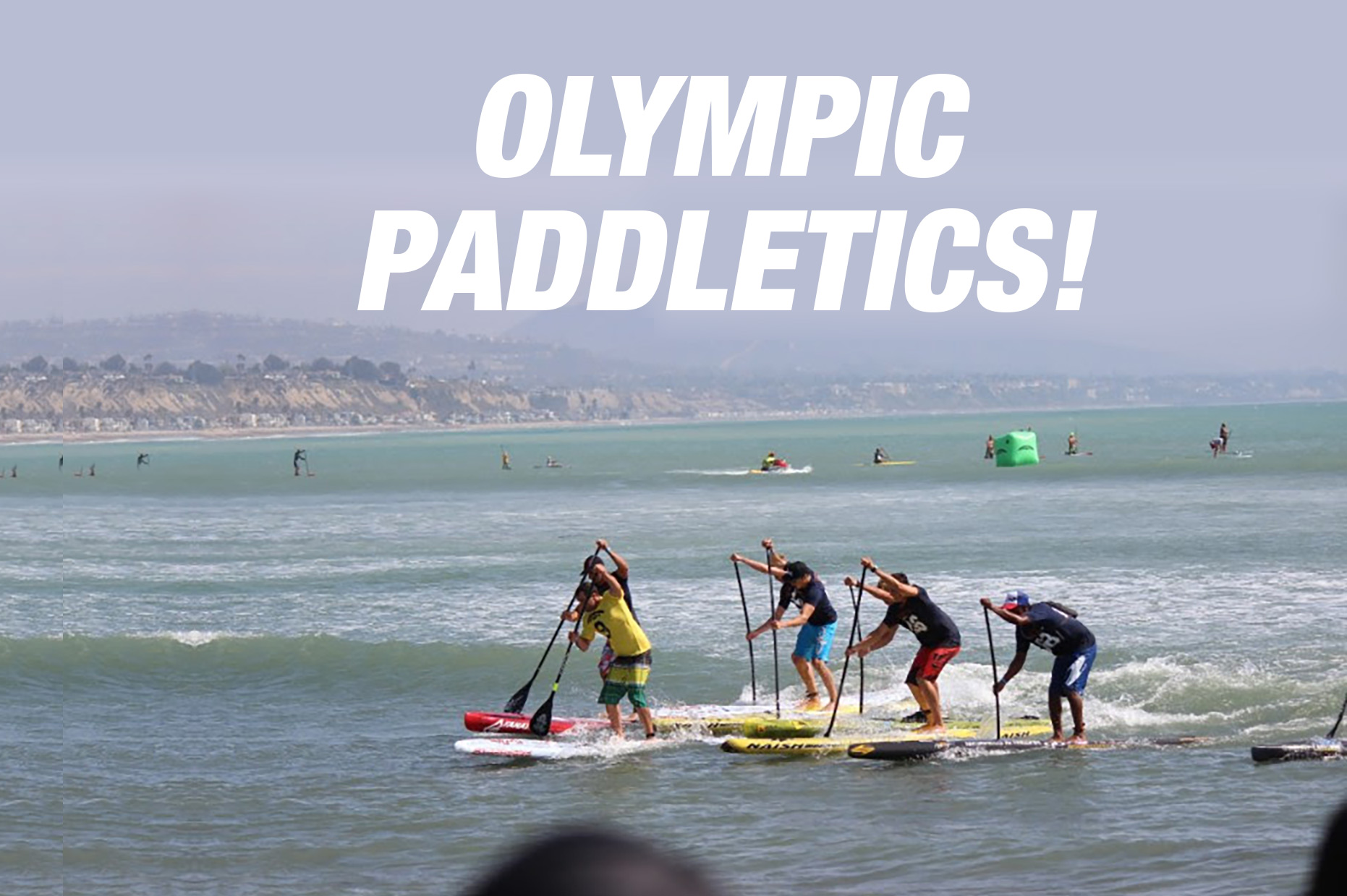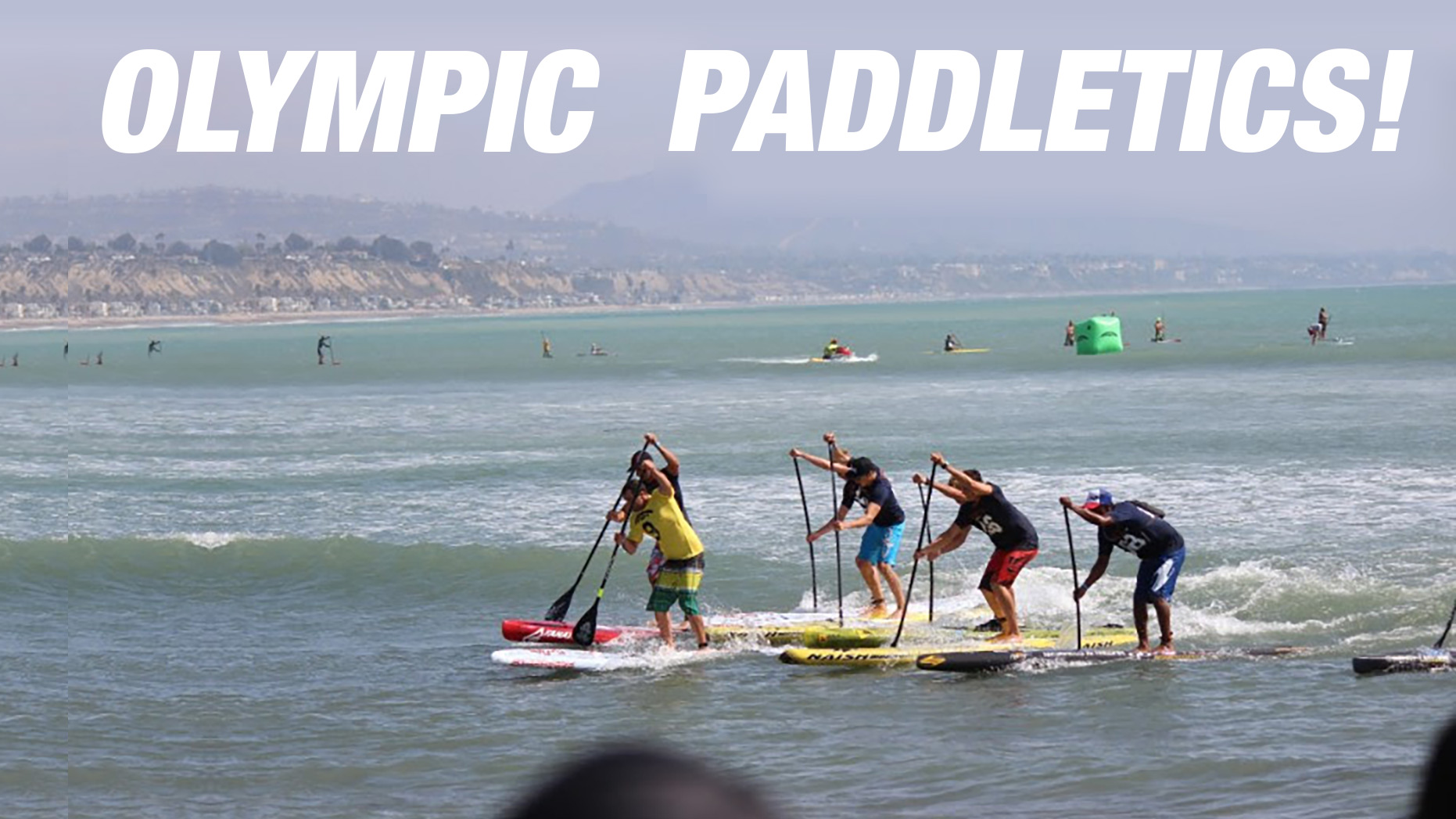
Well that’s interesting: The ICF just announced a $50k World Championship in China; “Your move, ISA.”
 [notdevice] [/notdevice]
[notdevice] [/notdevice]
Grab the popcorn.
Just when we were enjoying a nice little break from the usual politics (or “paddletics”), the ICF has gone and lobbed a grenade at the ISA as the two international federations continue their bizarre fight for Olympic control of our sport.
Earlier today, the International Canoe Federation (ICF) confirmed it’ll be hosting its first ever “Stand Up Paddling World Championship” in Qingdao, China later this year.
Yes, China. The same country that hosted the International Surfing Association (ISA) SUP World Championship just three months ago.
There’s so much to dig into here that I don’t even know where to begin…
After being thwarted by an austere, ISA-backed legal challenge last year, which forced the cancellation of its planned event in Portugal, the ICF has managed to secure and announce its 2019 championship before we’ve heard anything at all from the Surfing Association.
It’s the equivalent of throwing down the gauntlet and saying “Your move, ISA.”
This glove-slap takes on even more significance when we consider the two federations are locked in a legal battle behind closed doors in Switzerland for Olympic “ownership” of stand up paddling. The Court of Arbitration for Sport (CAS), which is essentially the Supreme Court of the Olympic and wider sporting worlds, is apparently set to make a decision next month. Not that anyone in the SUP community has heard anything.
The 2019 “ICF Worlds” (is that going to be a term now?) are planned for October 24-27. The city, which sits on China’s east coast about halfway between Shanghai and Beijing, is no stranger to international ocean events: Qingdao hosted the sailing regatta during the 2008 Olympic Games.
The ICF Worlds event format hasn’t been revealed but I presume it’ll be similar to what was planned for Portugal, where athletes could have openly competed without having to go through ISA-style national qualification. It’s much more of an individual event than the ISA’s teams-based format.
The ICF was also planning amateur races in Portugal, which is a major point of differentiation to the ISA’s exclusive (and expensive) World Championship.
That event in Portugal actually sounded like it would have been a good one (many paddlers, both amateur and elite, were extremely disappointed when it was canceled), and early signs suggest China is following the same theme. Portugal was set to feature three events: a downwinder (yes, a real downwinder) along with a Battle of the Paddle-style beach race and a sprint event.
No word yet on logistics, which was a major headache for the ISA and many national teams during December’s event in China. Several athletes arrived in Hainan without their boards (the Sunova two-piece saved the day for many), while even those that did had to contend with the simple oddities of visiting China, such as the fact a foreigner can’t even rent a car (let alone speak the language).
So it’ll be interesting to see if the ICF addresses those concerns. It’s partnering with the well-funded Chinese Canoe Association to run the event, so you’d expect there will be no shortage of local expertise to help things run smoothly. But again, no word on how that’s all going to work just yet.
In announcing the Qingdao event, ICF President Jose Perurena didn’t pull any punches in regards to the ISA. Quoting directly from the presser:
“Last year athletes expressed their disappointment and frustration when, due to circumstances outside our control, we were forced to cancel our SUP World Championships in Portugal,” he said.
“We promised we would be back in 2019, and today we can announce we will deliver on our promise. The 2019 ICF SUP World Championships in China is set to be an event to remember.
“The SUP community told us they were very angry and frustrated that they had been denied the chance to compete at such a big, important event because of a court challenge,” Mr Perurena said.
All we know for sure is that Qingdao will be run and done within the space of four days, which is three times faster than the bloated ISA events that force paddlers to block half a month out of their calendars.
Oh and there’s $50,000 prize money in Qingdao. You think that might attract a few big names?
In contrast, the ISA offers no prize money while also charging an arm-and-a-leg for entries — some athletes paid $1200 just to register for last year’s event, which means the ICF event in Qingdao will be far more enticing in that regard. From memory, the ICF in Portugal last year was going to be around $60 per event to enter, though no word on 2019 pricing.
China is both an opportunity and a risk for the ICF: It could easily be accused of directly following in the footsteps of the ISA, yet it also has the chance to organise a superior event in the same country to prove it’s the more professional organisation. The 2018 ISA World Championship was roundly criticised by participating athletes, so the bar hasn’t been set particularly high.
But what’s with those ICF promo photos?
The International Canoe Federation used a photo from 2012 to promote today’s announcement (see the shot up top — that’s the 2012 Battle of the Paddle), which highlights both the ICF’s shortcomings and its motivations: The Canoe Federation is completely out of touch with the sport (seriously guys, you couldn’t find a more recent photo?), yet the Federation is also intent on bringing SUP back to its BOP-era glory days, which could be a very good thing.
Indeed, another photo on the ICF website is from the Pacific Paddle Games, which shows the ICF’s desperation to shed its “flat water only” reputation and prove to the SUP community that we won’t be “racing in lanes” if canoeists are in charge of Olympic stand up paddling.
Last year, the Canoe Federation retained the services of Rami Zur to help drive their SUP program. Rami is a former Olympic athlete, current Olympic coach and original member of the Southern California SUP crew who strongly advocates for returning stand up racing to the BOP era. The ICF executive may be out of touch with the sport but Rami knows what he’s talking about. So there’s hope.
The irony would be huge if the ICF – a federation known for running events in pure flat water venues where competitors are divided into separate lanes – managed to host an event in the ocean that was superior to the International Surfing Federation. But, quite unbelievably, that’s now a real possibility.
It’s mind-boggling to think just how poorly the ISA’s executive team has managed this entire saga. The ICF was so late to the game that it shouldn’t have even had a chance at this point, yet here we are on a seemingly-level battlefield.
The inaugural “ICF Worlds” are coming seven and a half years after the first edition of the “ISA Worlds” (Peru, February 2012), but that doesn’t seem to matter. The past is the past, and paddlers are tired of the ISA trumpeting how they were there first. We all know they were the first Olympic-recognised federation to get involved in the sport (though they still appeared four years after the BOP, so they were hardly first), but what is the ISA doing for the future of our sport? And for that matter, what is the ICF doing for the future of our sport?
Last year I labeled the two federations “selfish parents” for being more concerned about a legal battle than the actual sport. And nothing much seems to have changed since then.
Ever since the ICF threw its hat into the ring, the ISA has backed itself into a corner where its continued to jump at shadows, throw punches at ghosts and completely lose its focus on the actual sport while it fights this byzantine legal battle.
Meanwhile, the ICF has done virtually nothing at all to help push our sport forward. In fact, the Canoe Federation has often sent our sport backwards.
Hosting an international event with a $50,000 purse is highly commendable. The community should be very grateful — it’s going to create some legitimate buzz and serious opportunities for certain athletes, while it’ll hopefully provide a bit of entertainment for the community and also reach out to a wider audience. But at the same time, it’s hard to view this announcement as anything but a political move in an Olympic-sized game of chess.
Let’s not forget the ICF were the ones who selfishly blocked SUP getting into the 2018 Youth Olympics in Argentina, which could have been a great step forward for the sport. But instead of fostering sympathy and support after such developments, the ISA has somehow managed to alienate the SUP world by sticking its head in the sand and refusing to engage with the core community it pretends to represent.
The ISA is acting like a jealous boyfriend that’s pushing their partner into the arms of another man.
…except the SUP community doesn’t want to “date” either federation. If you poll the average paddler or pro athlete, 9 out of 10 will tell you that SUP should have its own international federation.
(To say the SUP community is tired of this whole Olympic saga would be an understatement.)
In fact, why are we worrying about the Olympics in the first place? Does stand up paddling even belong there? Is the sport ready? Is it a good fit even if it was ready? What race format would be most suitable for the Games? And most importantly, how would it connect to the grassroots of the sport and drive more participation? How would it grow the sport? How would it help more kids get on the water and more brands sell more boards? Neither federation seems to be asking any of these questions, they’re just falling over themselves to grab hold of the the ego, power and money that comes with Olympic recognition…
While today’s announcement gives the ICF a one-up in this ongoing battle, the ISA’s saving grace may come in the form of the PanAm Games in Peru, where SUP will make its debut in an Olympic-recognised, multi-sport event later this year.
The PanAms are basically the “Olympics of the Americas” and will feature both SUP surfing and SUP racing in early August. While the PanAms mean nothing to the rest of the world, they’re actually a really big deal in the Americas. This is the first time SUP has been involved, which could give the ISA enough momentum to counter the ICF event in October.
I’ve reached out to the ICF for more details on the Qingdao event in October and they’ve suggested more details (event format, logistics, etc) will be released in the next two weeks.
In the meantime, go grab some popcorn — I suspect there’s going to be a lot more Olympic drama to come as the ICF/ISA battle goes up a gear.
Got something to add to the debate? Share your opinion on the original Facebook thread.



